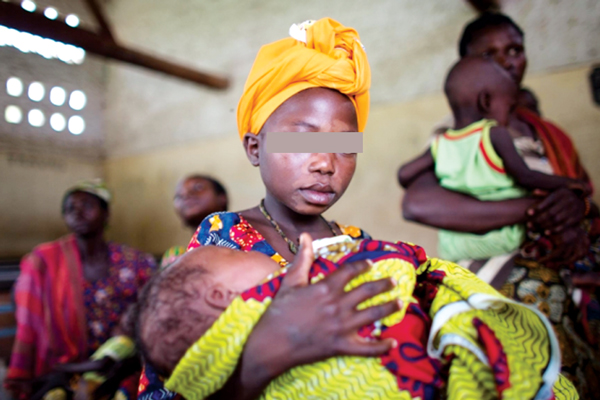
IT is a truism that the humanity of a society is reflected in the manner in which it treats its weaker members — particularly children.
It is against this backdrop that we hail the Constitutional Court (ConCourt) for its sober decision to outlaw child marriages.
There is no doubt that child marriage is a monster that for decades had been sustained by Section 22(1) of the Marriage Act, which allowed children under the age of 18 years to formally get married for as long as their parents or guardians consented to the union.
This gave rise to rampant abuse of girls in the country, particularly within apostolic sects where elderly men could marry off — or marry — teenage girls, most of whom were not even ready for marriage.
The fact that the ruling specifically states that children under the age of 18 will not be allowed to enter into any union, including those arising out of religion or religious rite, must be commended, to say the least.

It was a worrisome trend where some malcontents were now using religion as a ruse for men to cherry-pick promising young girls and derail their entire future as they turned them into bride mothers.
No doubt the Customary Marriages Act — which legalised marriages for underage girls — clearly infringed on the constitutional rights of young girls and boys who were getting married at an early age, sometimes even against their will. Therefore, the Concourt ruling brings sanity into a three-tier marriage system that bred confusion due to lack of a single, comprehensive law.
- Chamisa under fire over US$120K donation
- Mavhunga puts DeMbare into Chibuku quarterfinals
- Pension funds bet on Cabora Bassa oilfields
- Councils defy govt fire tender directive
Keep Reading
Young girls who got pregnant outside of wedlock were traditionally forced by their families to elope to the culprit and others ended up living miserable lives of rejection in the new unwelcoming families. Is it, therefore, not heartening that the court has put an end to that as an underage girl would no longer be forced into marriage but remain under the custody of her parents?
We believe this is indeed a progressive judgment which should be used as a torchbearer for other countries, particularly in Africa, where the scourge of child brides is widespread and millions of the young girls have no recourse to justice.
Several studies have demonstrated that early marriages have largely been responsible for perpetuating the cycle of poverty and an increase in both maternal and child mortality.
Indeed, the ruling will go a long way in preserving the sexual reproductive health and human rights of minors below the age of 18 — rights that had been trampled on and proved difficult to defend because of discordant laws.
It is hoped that with the ruling, the Justice, Legal and Parliamentary Affairs ministry will see to it that the requisite laws are aligned to the country’s governance charter without delay.
This was undeniably a landmark ruling demonstrating that the fight to protect children’s rights can be won.











